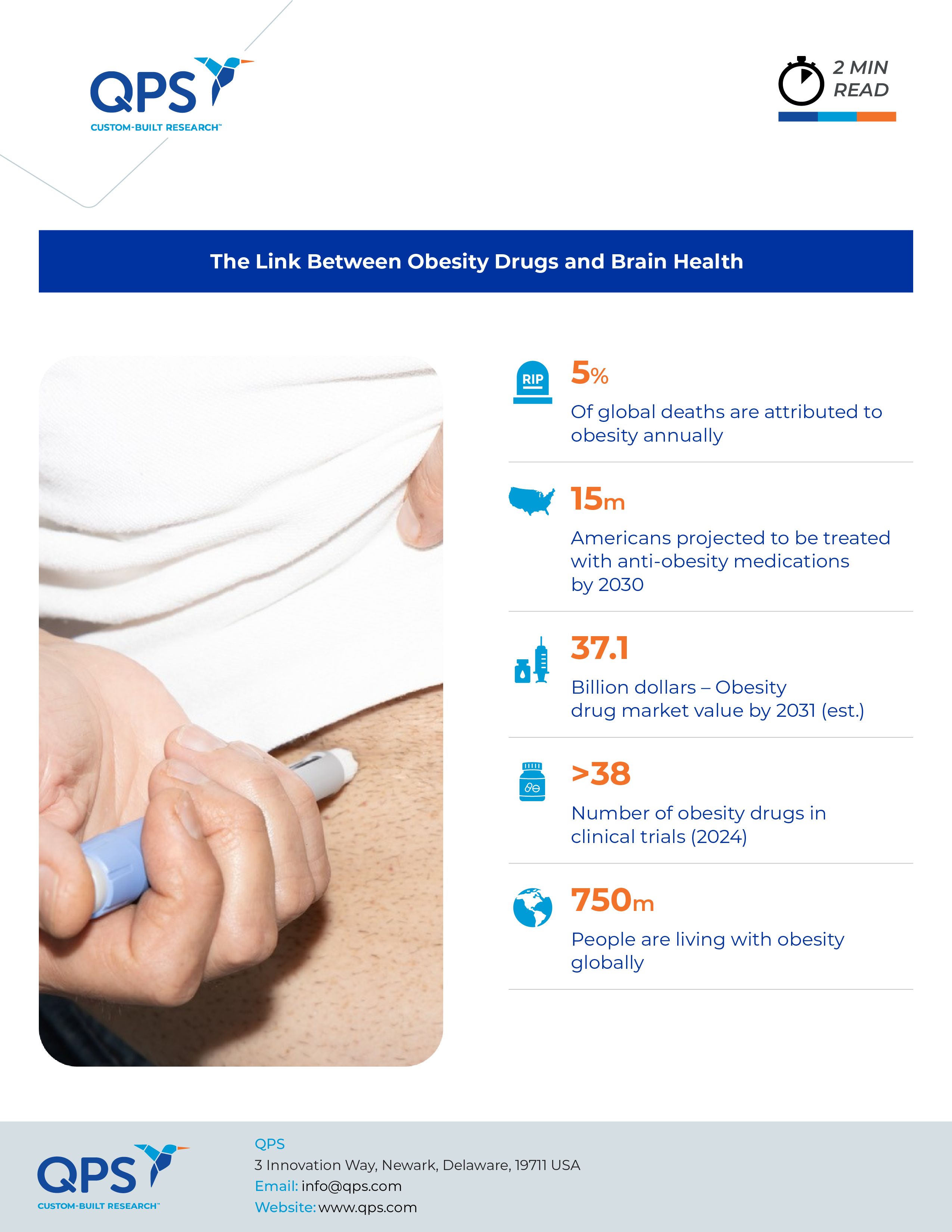Glucagon-like peptide-1 (GLP-1) receptor agonists are arguably the hottest topic in medical innovation. The drugs semaglutide and tirzepatide, known under brand names like Ozempic, Wegovy, and Mounjaro, were originally used to treat type 2 diabetes; now, these drugs have emerged as highly sought-after medications used for weight loss. But new research suggests that GLP-1 receptor agonists may serve a third purpose: subduing brain inflammation, thus potentially protecting against Alzheimer’s and Parkinson’s diseases. The study, entitled “Central glucagon-like peptide 1 receptor activation inhibits Toll-like receptor agonist-induced inflammation,” was published in the journal Cell Metabolism. Read on to find out more about the potentially far-reaching effects of the research into obesity drugs.
Obesity Drugs & Brain Health
Understanding Obesity Drugs
GLP-1 agonists like semaglutide and tirzepatide mimic a hormone called glucagon-like peptide-1 (GLP-1), which is produced in the intestine in response to food intake. GLP-1 receptor agonists activate the GLP-1 receptors on the tissues involved in glucose metabolism, enhancing insulin secretion and inhibiting the release of glucagon into the body.
Previous research has suggested that GLP-1 agonists also have an anti-inflammatory effect, as the GLP-1 hormone is involved in inflammation processes within the body. For that reason, GLP-1 agonists appear to protect against cardiovascular disease, which is largely linked to inflammation. “We know from animal studies and human studies that GLP-1 seems to reduce inflammation almost everywhere,” says endocrinologist Daniel Drucker, co-author of the study published in Cell Metabolism. Now, Drucker’s research has shed light on the potential impact of those anti-inflammatory properties on brain health.
Exploring the Link Between Obesity Drugs and Brain Health
Drucker’s research team expanded on anti-inflammatory research to explore the relationship between GLP-1 agonists and one organ particularly susceptible to the negative effects of inflammation: the brain.
The team started by assessing mice with pre-induced inflammation. They found that, while GLP-1 agonists reduced the inflammation, the effect only took hold when the brain receptors weren’t blocked. That shed light on a stunning possibility: that GLP-1 drugs are capable of interacting with the brain-immune system axis. That could have major implications for brain conditions like Alzheimer’s and Parkinson’s diseases, both of which are linked to pathways of inflammation.
Could GLP-1 Drugs Treat Alzheimer’s Disease?
Alzheimer’s disease and Parkinson’s disease both involve pathological proteins which interact with certain receptors that trigger neuroinflammation, or chronic inflammation in the neurological system. If GLP-1 receptor agonists prove effective in further trials, they could provide relief against neuroinflammation, potentially improving symptoms for individuals diagnosed with these degenerative diseases.
_____
As a next step, the team hopes to establish which brain cells are interacting with GLP-1. The team also plans to assess other animal models of inflammation throughout the organ system.
“As the scientific community deservingly celebrates GLP-1 agonists and their impact, there are many unknowns left,” noted Anne-Claude Gingras, director of the Lunenfeld-Tanenbaum Research Institute. “Dr. Drucker and his team have remained tenacious in their efforts to unpack how these drugs work, and this study deepens our understanding of metabolism and the complex brain-immune network that regulates it.”
QPS is a GLP- and GCP-compliant contract research organization (CRO) delivering the highest grade of discovery, preclinical and clinical drug research development services. Since 1995, it has grown from a tiny bioanalysis shop to a full-service CRO with 1,100+ employees in the U.S., Europe and Asia. Today, QPS offers expanded pharmaceutical contract R&D services with special expertise in neuropharmacology, DMPK, toxicology, bioanalysis, translational medicine and clinical development. An award-winning leader focused on bioanalytics and clinical trials, QPS is known for proven quality standards, technical expertise, a flexible approach to research, client satisfaction and turnkey laboratories and facilities. Through continual enhancements in capacities and resources, QPS stands tall in its commitment to delivering superior quality, skilled performance and trusted service to its valued customers. For more information, visit www.qps.com or email info@qps.com.








